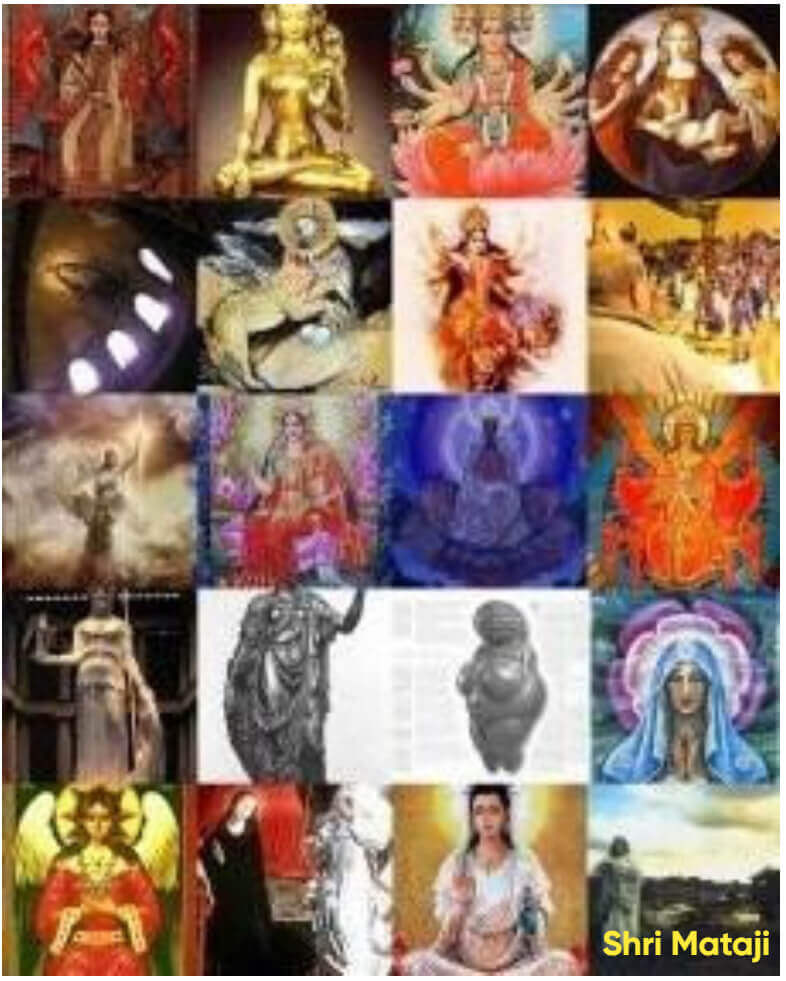Hindus have received their religion through revelation
Hinduism’s spiritual architecture is not built on human speculation but on divine resonance. The Vedas emerged not from ink and parchment but from the inner silence of enlightened Rishis who perceived the eternal blueprint of existence. These revelations, known as Sruti, are the sacred echoes of cosmic law—unwritten, unchanging, and universally accessible to those who seek with purity and depth.
"The Srutis are called the Vedas, or the Amnaya. The Hindus have received their religion through revelation, the Vedas. These are direct intuitional revelations and are held to be Apaurusheya or entirely superhuman, without any author in particular. The Veda is the glorious pride of the Hindus, nay, of the whole world!The term Veda comes from the root Vid, to know. The word Veda means knowledge. When it is applied to scripture, it signifies a book of knowledge. The Vedas are the foundational scriptures of the Hindus. The Veda is the source of the other five sets of scriptures, why, even of the secular and the materialistic. The Veda is the storehouse of Indian wisdom and is a memorable glory which man can never forget till eternity.
Revealed Truth Without Beginning Or End
The Vedas are the eternal truths revealed by God to the great Rishis of India. The word Rishi means a seer, from DRIS, to see. The Rishi is the Mantra-Drashta, a seer of Mantra or thought. The thought was not his own. The Rishis saw the truths or heard them. Therefore, the Vedas are what are heard (Sruti). The Rishi did not write. He did not create it out of his mind. He was the seer of thought which existed already. He was only the spiritual discoverer of the thought. He is not the inventor of the Veda.
The Vedas represent the spiritual experiences of the Rishi
of yore. The Rishi is only a medium or an agent to transmit to people the intuitional experiences which he received. The truths of the Vedas are revelations. All the other religions of the world claim their authority as being delivered by special messengers of God to certain persons, but the Vedas do not owe their authority to any one. They are themselves the authority as they are eternal, as they are the Knowledge of the Lord.
Lord Brahma, the Creator, imparted the divine knowledge to the Rishis or seers. The Rishis disseminated the knowledge. The Vedic Rishis were great realised persons (souls) who had direct intuitive perception of Brahman or the Truth. They were inspired teachers. They built a simple, grand and perfect system of religion and philosophy from which the founders and teachers of all other religions have drawn their inspiration.
The Vedas are the oldest books in the library of man. The truths contained in all religions are derived from the Vedas and are ultimately traceable to the Vedas. The Vedas are the fountain-head of religion. The Vedas are the ultimate source to which all religious knowledge can be traced. Religion is of divine origin. It was revealed by God to man in the earliest times. It is embodied in the Vedas.
The Vedas are eternal. They are without beginning and end. An ignorant man may say how a book can be without beginning or end. By the Vedas, no books are meant. Vedas came out of the breath of the Lord. They are the words of God. The Vedas are not the utterances of persons. They are not the composition of any human mind. They were never written, never created. They are eternal and impersonal. The date of the Vedas has never been fixed. It can never be fixed. Vedas are eternal spiritual Truths. Vedas are an embodiment of divine knowledge. The books may be destroyed, but the knowledge cannot be destroyed. Knowledge is eternal. In that sense, the Vedas are eternal.” (Swami Shivananda)
"Three religions now stand in the world which have come down to us from time prehistoric - Hinduism, Zoroastrianism, and Judaism. They have all received tremendous shocks, and all of them prove by their survival their internal strength. But while Judaism failed to absorb Christianity and was driven out of its place of birth by its all-conquering daughter, and a handful of Parsees is all that remains to tell the tale of their grand religion, sect after sect arose in India and seemed to shake the religion of the Vedas to its very foundations, but like the waters of the sea-shore in a tremendous earthquake it receded only for a while, only to return in an all-absorbing Hood, a thousand times more vigorous, and when the tumult of the rush was over, these sects were all sucked in, absorbed and assimilated into the immense body of The Mother faith.
From the high spiritual flights of the Vedanta philosophy, of which the latest discoveries of science seem like echoes, to the low ideas of idolatry with its multifarious mythology, the agnosticism of the Buddhists and the atheism of the Jains, each and all have a place in the Hindu's religion.
Where then, the question arises, where is the common center to which all these widely diverging radii converge? Where is the common basis upon which all these seemingly hopeless contradictions rest? And this is the question I shall attempt to answer.
The Hindus have received their religion through revelation, the Vedas. They hold that the Vedas are without beginning and without end. It may sound ludicrous to this audience, how a book can be without beginning or end. But by the Vedas no books are meant. They mean the accumulated treasury of spiritual laws discovered by different persons in different times. Just as the law of gravitation existed before its discovery, and would exist if all humanity forgot it, so is it with the laws that govern the spiritual relations between soul and soul and between individual spirits and the Father of all spirits were there before their discovery, and would remain even if we forgot them.
The discoverers of these laws are called Rishis, and we honor them as perfected beings. I am glad to tell this audience that some of the very greatest of them were women.”
Hindus have received their religion through revelation
Swami Vivekananda's Address at The World's Parliament of Religions
Chicago, USA, September 11, 1893
Vedic Revelation – Hinduism’s Divine Origin Through Eternal Truths
Table of Contents
- Introduction
- The Nature of Hindu Revelation: Śruti
- The Divine and Impersonal Origin: Apauruṣeya
- The Vedas: The Fountainhead of Knowledge
- Distinction from Smṛti
- Conclusion
- References
Introduction
Religion, in its myriad forms, often traces its origins to a source beyond the purely human realm. This divine disclosure, or revelation, serves as the bedrock of faith for billions worldwide. While the Abrahamic traditions of Judaism, Christianity, and Islam are perhaps most famously associated with the concept of revealed scripture, Hinduism, one of the world's oldest living religions, is also profoundly rooted in a unique and ancient understanding of revelation. This paper will explore the central thesis that Hindus have received their religion through revelation, a revelation embodied in the sacred texts known as the Vedas. We will delve into the key concepts of Śruti (that which is heard) and Apauruṣeya (of non-human origin), and examine the role of the ancient sages, or Rishis, as the seers of these eternal truths.
The Nature of Hindu Revelation: Śruti
The foundational concept of revelation in Hinduism is encapsulated in the term Śruti, a Sanskrit word meaning "that which is heard."[1] This term refers to the most authoritative and ancient body of Hindu scriptures, which are believed to be the direct, unmediated word of God. The Manusmriti, a foundational text of Hindu law, unequivocally states, "Śrutistu vedo vijñeyaḥ," which translates to "Know that the Vedas are Śruti."[2] This declaration establishes the Vedas as the ultimate source of religious knowledge and authority in Hinduism.
The process of Vedic revelation is not one of divine dictation to a single prophet, but rather a more subtle and profound experience of "hearing" or "seeing" by ancient sages known as Rishis. These were not authors in the conventional sense, but rather spiritual discoverers who, through intense meditation and spiritual discipline, attuned themselves to the eternal vibrations of truth. As Swami Sivananda explains:
This understanding of the Rishi as a conduit for divine knowledge, rather than a creator of it, is central to the Hindu concept of revelation. The truths of the Vedas are considered eternal and pre-existing, and the Rishis were the instruments through which these truths were made accessible to humanity.
The Divine and Impersonal Origin: Apauruṣeya
Closely intertwined with the concept of Śruti is the doctrine of Apauruṣeya, which means "not of human origin."[4] This doctrine posits that the Vedas are eternal and authorless, existing beyond the realm of human creation. Unlike the scriptures of many other religions, which are attributed to specific individuals who received divine messages, the Vedas are considered to be self-existent and self-authoritative. Their authority does not derive from any single prophet or messenger, but from their inherent nature as the eternal knowledge of the Lord.
This concept of an impersonal and eternal revelation distinguishes Hinduism from many other world religions. While other faiths may revere their scriptures as divinely inspired, the Hindu tradition goes a step further by asserting that the Vedas are not merely inspired by God, but are the very breath of God, the eternal sound of truth itself. As Swami Vivekananda eloquently stated in his address to the World's Parliament of Religions in 1893:
The Vedas: The Fountainhead of Knowledge
The Vedas, as the embodiment of Śruti, represent the ultimate source of knowledge and wisdom in Hinduism. They are a vast and complex collection of texts, composed over centuries, that encompass a wide range of subjects, from hymns and rituals to profound philosophical treatises. The four main Vedas are:
- The Rig Veda: The oldest and most important of the Vedas, containing hymns of praise to various deities.
- The Yajur Veda: A collection of prose mantras and sacrificial prayers.
- The Sama Veda: Melodies and chants to be sung during rituals.
- The Atharva Veda: Spells, incantations, and hymns for various purposes, including healing and protection.
Each of these Vedas is further divided into four sections: the Samhitas (hymns), the Brahmanas (ritual texts), the Aranyakas (forest treatises), and the Upanishads (philosophical texts). The Upanishads, in particular, are renowned for their profound mystical and philosophical insights, and form the basis of the Vedanta school of philosophy.
Distinction from Smṛti
It is important to distinguish Śruti from another category of Hindu sacred texts known as Smṛti, which means "that which is remembered."[6] Smṛti texts, which include the great epics (the Ramayana and Mahabharata), the Puranas, and the Dharma Shastras (law books), are considered to be of human origin. While they are highly revered and influential, they are considered secondary in authority to the Śruti. The Smṛti texts are seen as the teachings of sages and saints who have understood and interpreted the eternal truths of the Vedas, and have transmitted them to humanity in a more accessible form. As the Wikipedia article on Śruti clarifies:
Conclusion
In conclusion, the Hindu tradition is unequivocally a religion of revelation, but its understanding of revelation is unique and profound. The concept of Śruti as "that which is heard" by the ancient Rishis, and the doctrine of Apauruṣeya, which posits the eternal and authorless nature of the Vedas, set the Hindu understanding of scripture apart from that of many other world religions. The Vedas are not merely a historical record or a collection of moral teachings, but are considered to be the very fabric of reality, the eternal sound of truth itself. This unwavering faith in the divine origin and authority of the Vedas has been the bedrock of Hindu thought and culture for millennia, and continues to inspire and guide millions of Hindus around the world.
References
[1] "Śruti." Wikipedia, Wikimedia Foundation, 25 Sept. 2025.[2] "Śruti." Wikipedia, Wikimedia Foundation, 25 Sept. 2025.
[3] Sivananda, Swami. "The Srutis." The Divine Life Society, 2025.
[4] "Apauruṣeyā." Wikipedia, Wikimedia Foundation, 22 Aug. 2025.
[5] Vivekananda, Swami. "Hindus have received their religion through revelation." Address at The World's Parliament of Religions, Chicago, 11 Sept. 1893.
[6] "Śruti." Wikipedia, Wikimedia Foundation, 25 Sept. 2025.
[7] "Śruti." Wikipedia, Wikimedia Foundation, 25 Sept. 2025.


